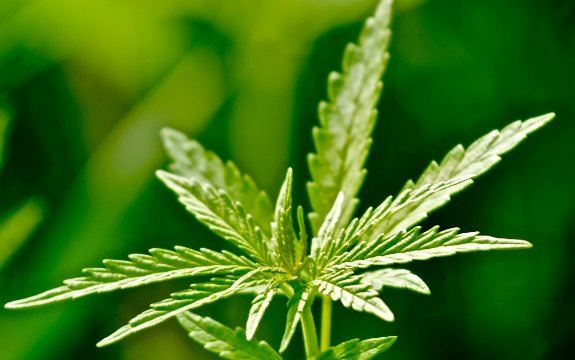Annual Retail Sales for Hemp at $581 Million, Growing by 24% Annually

 While the battle to legalize medical or recreational marijuana rages on, with plans to treat pot like alcohol being introduced in 21 states and the District of Columbia this year alone, hemp, which is marijuana’s non-hallucinogenic cousin, is also gaining some much-deserved attention. In fact, annual retail sales for hemp are at approximately $581 million, growing by 24% annually.
While the battle to legalize medical or recreational marijuana rages on, with plans to treat pot like alcohol being introduced in 21 states and the District of Columbia this year alone, hemp, which is marijuana’s non-hallucinogenic cousin, is also gaining some much-deserved attention. In fact, annual retail sales for hemp are at approximately $581 million, growing by 24% annually.
The Marijuana Policy Project states that the entire country will soon be marijuana-friendly, but what of hemp? Annual retail sales of various hemp products from non-dairy milk to lotions and soaps made from the super-crop already amount to $581 million, and the growth rate for retail hemp is hovering around 24% before it has even been decriminalized by the DEA (Drug Enforcement Administration).
The North American Industrial Hemp Council, “a coalition of farmers, politicians, manufacturers and environmental groups.” has filed two petitions. One, to ask the U.S. Department of Agriculture to create a licensing system permitting farmers to once again grow hemp in this country, and another to ask the DEA to cease its classification of industrial hemp as an illegal, Schedule I drug. This is a fair request considering the fact that hemp contains miniscule levels of THC (tetrahydrocannabinol), which makes it of no interest to an unregulated drug market.
“The same chemical companies who are trying to poison us with GMOs and pesticides are also responsible for early anti-hemp campaigns.”
Our country has a long history of hemp cultivation, and it was only recently stripped from us by the DEA in an effort to start a ‘war against drugs.’ Both George Washington and Thomas Jefferson grew hemp on their plantations and Benjamin Franklin started one of America’s first paper mills using cannabis (hemp) as the basis. Even school books were made from either hemp or flax paper until the late 1880s.
Read: 4 Uses for Industrial Hemp
The state of Kentucky once produced 40,000 tons of hemp in 1850, while the DEA recently seized 250 pounds of hemp seed in this state. The seeds, imported from Italy, were destined for research projects authorized by Congress and President Obama as part of the 2014 Farm Bill. So what gave the DEA a right to interfere?
“In a May 22nd letter releasing the seeds, the DEA warned Kentucky officials that private farmers could face prosecution for planting hemp, and pilot projects could be destroyed as part of the federal marijuana eradication program. The DEA said it seized the seeds because the intent of the farm bill is unclear and doesn’t include rules for importing hemp seeds. In response, state officials sent a letter to a federal judge in Louisville, seeking a declaratory ruling. A court date has yet to be announced,” reports Rolling Stone.
This sort of federal bullying regarding hemp cultivation is ridiculous. Even Henry Ford’s first Model-T was to run on hemp oil and parts were even to be made from hemp plastics. Furthermore, the US isn’t the only country with hemp roots. Hemp farming goes back to at least ancient Egypt and the early dynasties of China. It has a long precedence of providing food, medicine, fuel, and textiles to people of many nations.
This ‘war against drugs’ was primarily a war against hemp and marijuana since these two crops, varieties of cannabis, are multi-functional and impose a threat to every large multinational corporation – oil companies, Big Ag, and others are especially interested in keeping hemp cultivation illegal. The same chemical companies who are trying to poison us with GMOs and pesticides are also responsible for early anti-hemp campaigns.
“The DEA appears to be dazed and confused by industrial hemp,” said Andy Graves, a Lexington farmer whose family has grown hemp for seven generations, including during World War II for the “Hemp for Victory” program.
Guess who started the anti-hemp movement? Dupont’s chief financial backer, Andrew Mellon, was US President J. Herbert Hoover’s secretary of the treasury. He appointed his nephew, Harry J. Anslinger, to a position in the Federal Bureau of Narcotics and Dangerous Drugs.
Despite this, hemp sales are on the rise. Americans know their history, and they won’t be told they can’t grow hemp.

Love it